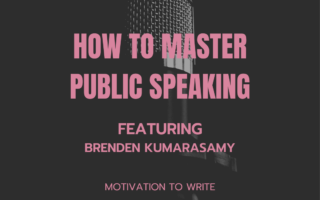The personal essay–an essay that tells a true story from the writer’s life or that explores an idea or topic through her experience–is the essence of creative non-fiction. It is an intimate format. In many cases, a personal essay is a short memoir taking its audience on a journey through a difficult or humorous or curious period in the author’s life. Personal essays can focus on a single event or span a particular time.
Time to Get Personal
Writing such an essay requires a writer to be vulnerable. It’s success hinges on openness, honesty, and accountability. It isn’t enough to simply tell your readers about your first break-up: You must relive it in front of them.
This is why some new writers may shy away from this form. The “personal” in the personal essay is real. You have to be courageous enough to take your audience through your experience with dignity and fairness. Readers neither want nor need every detail, but they need a balanced and authentic account of your story.
Let’s Be Fair
When I say balanced, I mean equitable. You must acknowledge your shortcomings and take responsibility for your mistakes while conveying the pain of your experience. You must also recognize the other character’s point of view or experience. Doing so builds trust with your readers.
If you lay all the blame on another person or circumstance in your story without considering with honesty your role in the conflict, you will come across as a powerless victim. You leave no space for redemption or victory; both are upon which the personal essay thrives.
Take It From the Pros
Take, for example, this passage from Cheryl Strayed’s essay “The Boy With Blue Hair,” where she recounts her adventuresome yet dangerous love affair with a drug addict:
“Time passed, and he became not himself in my memory but an emblem of my youthful folly, my experimental daring, my authentic scrabble to find a way in the world.”
She doesn’t vilify him for being a bad boyfriend, and she doesn’t criticize herself for having been involved with him. Instead, she acknowledges her “folly” while revealing the pain she felt.
In “What a Black Woman Wishes Her Adoptive White Parents Knew,” Mariama Lockington reflects on her conflicting childhood and her parent’s inability to understand her experience. Although she holds them responsible for their lack of awareness, she concedes her willingness to support their oblivion:
“I protect you. I protect myself. I make excuses for our family…Maybe you think your silence is better than fumbling awkwardly through uncomfortable realities…Or maybe, like many white people, you just feel overwhelmed by it all, and so you opt-out of addressing oppression or injustice altogether.”
She considers their point of view, their feelings, and experience while holding fast to her truth.
This is the fragile yet necessary task of the writer: speak your truth with an open heart. Herein lies the backbone of the personal essay.




